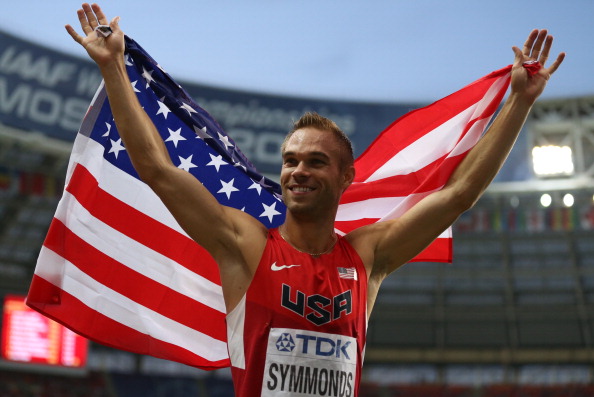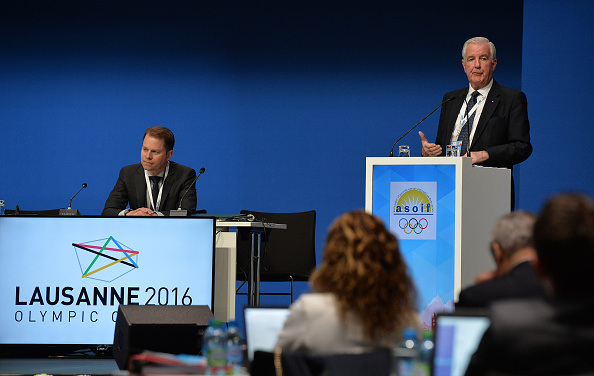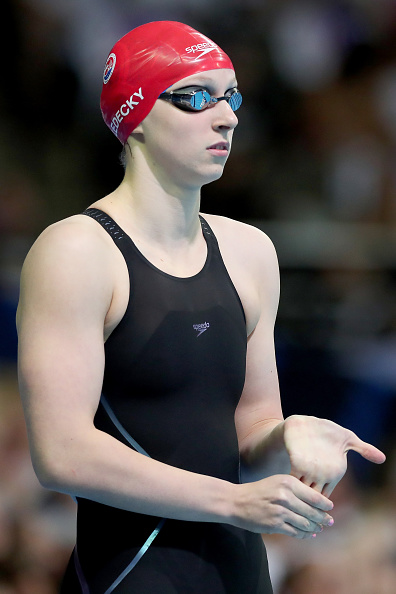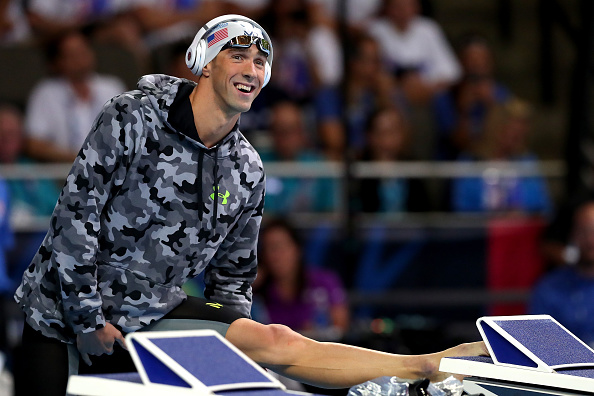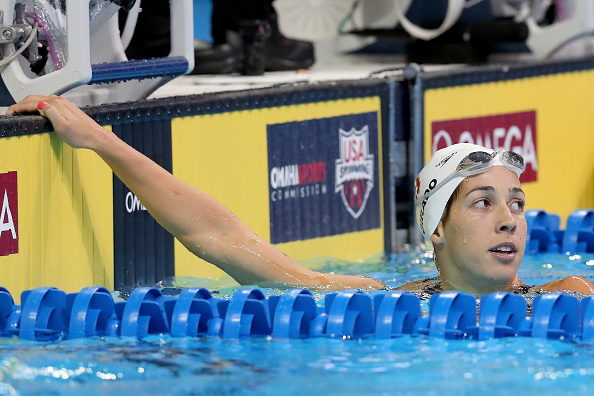RIO de JANEIRO — Imperfect for sure, like life itself, the Rio 2016 Summer Games sighed Sunday to a close, an Olympics likely to go down in history for first-rate sport that offered a break from a welter of financial, logistical and political challenges or perhaps served merely to underscore just how difficult it is, now, to put on an Olympic Games.
For every Michael Phelps, there was the story of green water in the diving pool. For every Usain Bolt, there was the stray bullet that pierced the tent at the equestrian center. For every Simone Biles, there were the winds that ripped an overhead television camera from its cable at Olympic Park, injuring seven people, two of them children.
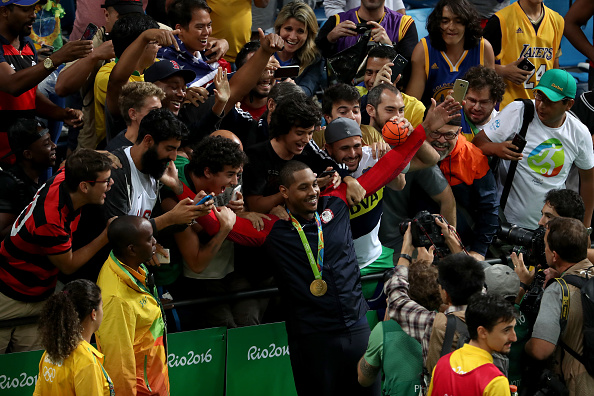
To draw an analogy from golf, which made its Olympic debut here with many of the world’s top male professionals opting out: these Games were a grind, hazards everywhere, the kind of round where any reasonable player would, upon sinking that last putt on 18 to complete a round pocked with bogeys, pause to look around and go — whew.
Made it. Somehow.
“I am the happiest man alive,” the president of the Rio 2016 organizing committee, Carlos Nuzman, said at Sunday’s closing ceremony, a moment later calling these Games “a great challenge but a great success.”
The Rio Games may not have been the biggest, or the smoothest, or the most significant or, hardly, the best. But they were the first-ever in South America. And considering the political and economic upheaval buffeting Brazil, the assessment rendered Saturday at a news conference by the International Olympic Committee president, Thomas Bach, seems worth reviewing:
“An iconic Games but it is also a Games in the middle of reality,” he said, adding, “It has not been organized in a bubble but in a city where there are social problems and social divides, where real life continued.
“This was very good for everybody — to be close to reality and not in a bubble for 16 days and isolated from society.”
In 2009, when the IOC awarded these Games to Rio, over Chicago, Madrid and Tokyo, Brazil’s economy was booming. Party! Like the percussive dance jam that pumped through Sunday night’s closing ceremony at the famed Maracanã Stadium, accented by the return of the shirtless, oiled-up, buff opening ceremony flag bearer from Tonga, the taekwondo athlete Pita Taufatofua.
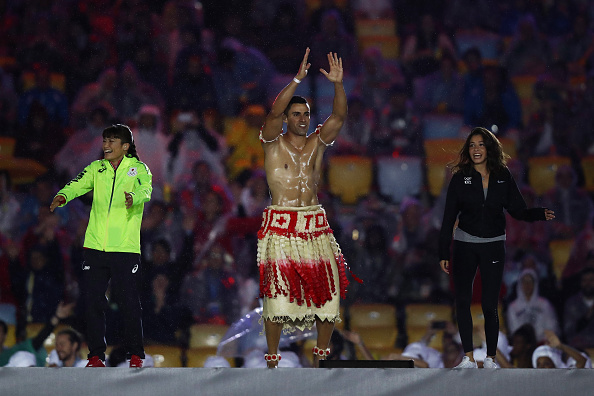
Problem is, between 2009 and Sunday night, the Brazilian economy crashed.
This made plain the No. 1 issue that bedeviled these 2016 Games. It was not lack of planning or late planning or attention to detail, though those were concerns. Instead, when issues stemming from planning or detail would arise, there simply was not sufficient money to make it 100 percent right. This reality, when the Paralympics open in just a couple weeks amid deep budget cuts, will be even more manifest.
Meanwhile, Brazil has been buffeted by political corruption and turmoil. The country is, even now, in the midst of a presidential impeachment drama.
Then, in the weeks before the Games, the headlines elsewhere frequently trumpeted fears of Zika, of scary water, of the street crime and way, way more, including outrage — from all sides — over reports of state-sanctioned doping in Russia.
It is worth noting that, before Brazil, the only nation to have put on both the soccer World Cup and the Olympics in a two-year span is the United States, soccer in 1994 and the 1996 Summer Games in Atlanta. Those 1996 Games are not remembered fondly — with transit, technology and security woes.
The 2014 World Cup happened. And the many predictions of colossal disaster for Rio 2016: averted.
Zika: swarms of mosquitoes did not appear. Water: rowers, sailors, swimmers did their thing. Security: a lot of armed soldiers but, to be honest, that is now reality everywhere post-9/11.
Indeed, as soon as the sport itself got underway, the spotlight shifted to the athletes of the world, and their struggles and accomplishments.
To quote the American Sam Kendricks, bronze medalist in the men’s pole vault: "The Olympics is like high tide, it raises all boats and brings the best out of all of us."
The Russian ban meant its usually-strong track and field team — with the exception of one long jumper, Darya Klishina — didn’t travel. She finished ninth in the women’s long jump.
That helped open the door for the United States, in particular, to record its best medal count since the boycott-marked 1984 Los Angeles Games — 121 overall, 46 gold. Second depends how you count, by gold or overall. The American way prioritizes the overall count. China had 70, 26 gold. The rest of the world goes by the gold standard. Great Britain finished with 27 gold, 67 overall.
The Russian team finished with 56 and 19.
In 1984, the Americans won 174 total. In London four years ago, 103.
The U.S. swim team won 33 of the 121 medals. The track team, 32, Galen Rupp running Sunday morning to bronze in the men’s marathon.
Some stalwarts produced as expected.
Katie Ledecky won four gold medals (and a silver), setting two world records.
Phelps, five gold medals (and a silver). He now has 28 career Olympic medals, 23 gold.
Biles, the world’s best gymnast: four gold medals (and a bronze). She carried the U.S. flag into the closing ceremony.
Usain Bolt completed the triple-triple, winning the 100m, 200m and taking part in the victorious 4x100m relay for a third straight Games — after London in 2012 and Beijing in 2008.
The U.S. women’s basketball team cruised to a sixth straight gold.
On Sunday, in one of the final contests of the Games, the U.S. men’s basketball team completed a three-peat under coach Mike Krzyzewski, defeating Serbia, 96-66, for gold. The NBA star and USA Basketball stalwart Carmelo Anthony won his third gold medal— the only male basketball player in Olympic history with three golds.
Before the game, Krzyzewski was asked about the 2016 Games. He said, “We’ve been treated in just amazing fashion and the care, the security, the friendliness, just the hospitality of the Brazilian people, have been spectacular. I hope we win but I’ll tell you what — we’ll go away with a great feeling about Rio. We’ve loved being here. We could not have been treated better.”
“This is still a magic city and a magic place,” Nuzman insisted Sunday night.
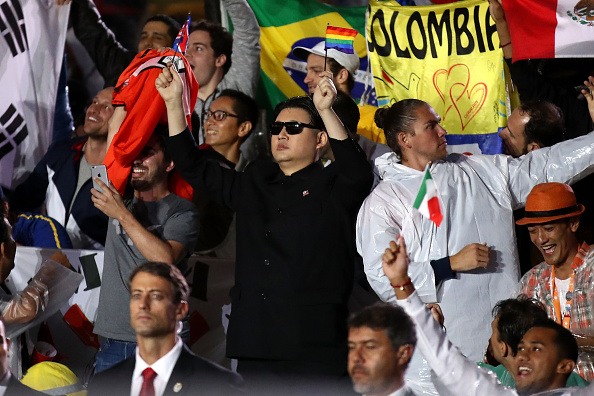
Some performances, even if unexpected, proved thrilling — the magic, perhaps, of the Olympic experience.
Brazil gained a measure of revenge for the 7-1 2014 German World Cup semifinal beatdown by defeating Germany to win gold in men’s soccer, 5-4 on penalties after tying 1-1 in regulation.
South Africa’s Wayde van Niekerk not only won gold in the men’s 400m, he set a new world record, 43.03 seconds — obliterating Michael Johnson’s 1999 mark, 43.18. Britain’s Mo Farah completed the distance double-double, winning the men’s 5000m and 10000m runs, just as he had in London. Matthew Centrowitz of the United States won the men’s 1500m at the track, the first gold for the United States in that event since 1908 — a signal of karma, perhaps, for Chicago Cubs fans everywhere.
The American swimmer Anthony Ervin, 35 years old, won the men’s 50m free a full 16 years after he had done the very same thing in Sydney. The U.S. track standout Allyson Felix won three medals, two gold in the relays, and now has six golds overall — most of any female track athlete in Olympic history.
If the essence of that Olympic experience, meantime, is the gathering of the world’s young people, there was more, way more, in the unexpected category.
The Fiji men’s rugby sevens team won that island nation’s first-ever Olympic medal. It was gold.
Kosovo judoka Majlinda Kelmendi won that eastern Europe nation’s first-ever Olympic medal. It was gold.
Singapore swimmer Joe Schooling won that small Southeast Asian nation’s first-ever Olympic gold. He won the men’s 100m butterfly, with Phelps, South Africa’s Chad le Clos and Hungary’s Laszlo Cseh forging a three-way tie for silver.
The 10 members of the refugee Olympic team didn’t win any medals - not hardly.
No matter.
“I hope,” swimmer Yusra Mardini, who escaped the war in Syria, said after the heats of the women’s 100m freestyle, “refugees are not refugees any more and they have their hope to continue their dreams after they see us."
At the beach volleyball venue, in an early-round women’s match, Egypt played Germany, Egyptian Doaa Elghobashy fully clothed and her head covered in a hijab, the German duo in bikinis.
Before the Brazil-Argentina men’s basketball game last weekend, a thrilling affair that went to double overtime, Argentina prevailing, 111-107, Brazil’s Marcelo Huertas and Argentina’s Luis Scola addressed the crowd to make a plea for the key Olympic values: friendship, excellence and, most of all, respect.
“We’re Latin American brothers,” Huertas said, “and we are counting on you to have a celebration."
Scola said, “On behalf of my team, I want to ask you to cheer for your team, to have fun in a civilized manner and with a lot of respect."

This, in the end, is the enduring lesson of the Olympics — one the American swimmer Ryan Lochte is sure to have considerable time to mull over in the aftermath of his purported robbery story, a tale that hijacked considerable focus the second week of the Games away from the hopes and dreams of the many athletes still here.
The IOC has opened a review of the matter. The U.S. Olympic Committee, in a news conference Sunday, said disciplinary action of some sort is forthcoming, chief executive Scott Blackmun saying of Lochte and three other swimmers, “They let down our athletes. They let down Americans.”
Meanwhile, Ireland’s Patrick Hickey, a member of the IOC’s policy-making executive board, was arrested on suspicion of involvement in a ticket scam. If Monday is travel day for most who were here, the 71-year-old Hickey’s immediate future remains entirely unclear. He reportedly was locked up in the maximum security Bangu Prison here while the wheels of Brazilian justice start to spin.
Because of the way the Olympic cycle works, it’s now roughly 17 months until the next edition of a Games — the 2018 Winter Olympics, in the hamlet of Pyeongchang, South Korea. This past Tuesday, Taylor Fletcher won his first U.S. national title in Nordic combined; in warm weather, they substitute roller skis for the waxed winter kind.
In between Rio and Pyeongchang, at an assembly in September, 2017, in Lima, Peru, the IOC will make its 2024 pick. Los Angeles, Paris, Rome and Budapest are in the hunt.
Tokyo will put on the 2020 Games. The IOC here affirmed the introduction of new sports at those 2020 Olympics, among them surfing, skateboarding and rock climbing. Late Sunday, as Rio came to a close, the Olympic Channel went online — the Olympic movement’s digital effort to make the Games more relevant than a thing every two weeks every two years, to highlight the stories of the athletes who, despite everything, can and do provide inspiration to the little kids they used to be and, as well, the grown-ups trying to make sense of our imperfect world.
As Bach said in opening these Rio Olympics, “We are living in a world of crises, mistrust and uncertainty. Here is our Olympic answer."
Further crises and uncertainties assuredly await. The next editions of the Olympics, too, “iconic” or not.




